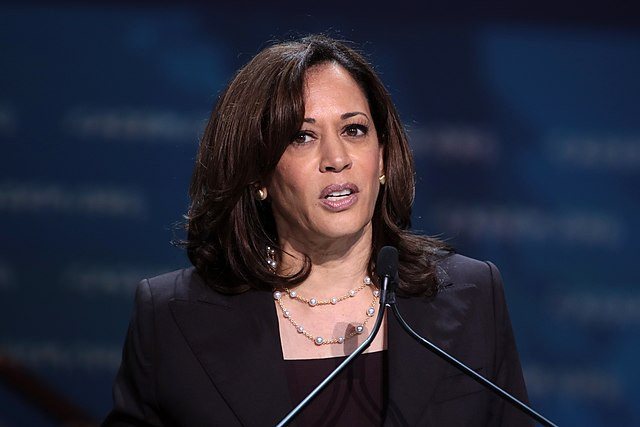Vice President Kamala Harris faced a significant setback this week as the International Association of Fire Fighters (IAFF), a major labor union representing more than 300,000 members, declined to endorse her campaign in the 2024 presidential election. The decision is particularly notable given that the IAFF was one of the first unions to back President Joe Biden in 2020, highlighting a shift in labor sentiment as the election season intensifies.
The IAFF announced its non-endorsement on Thursday, with General President Edward Kelly stating that the decision was reached by a narrow margin of just 1.2%. "This decision, which we took very seriously, is the best way to preserve and strengthen our unity," Kelly explained. "We encourage our members-and all eligible voters-to get out and make their voices heard in the upcoming election."
The move follows a similar non-endorsement from the International Brotherhood of Teamsters last month, signaling growing hesitation among labor unions to back any candidate, despite their historic ties to the Democratic Party. This shift could pose a challenge for Harris as she relies heavily on union support, particularly in key battleground states such as Pennsylvania, Michigan, and Wisconsin.
A Break from Tradition
The IAFF's decision is unusual given its longstanding relationship with Biden and the Democratic Party. The union was among the first to throw its support behind Biden during the 2020 race, largely due to Biden's decades-long ties with the union and its former leader, Harold Schaitberger. In contrast, the union's refusal to back Harris raises questions about labor's evolving role in the upcoming election and could signal cracks in the Democratic Party's once-solid labor coalition.
Both Harris and her Republican opponent, Senator JD Vance of Ohio, made direct appeals to the IAFF at its August convention in Boston, with speeches aimed at rallying support from union members. Harris has traditionally enjoyed strong backing from organized labor, but the growing reluctance of some unions to offer their endorsements reflects increased concerns over policy priorities and labor conditions under her administration.
Labor Unions Flex Their Muscle
The non-endorsements come at a critical time for Harris, whose campaign has emphasized the importance of labor support in reaching working-class voters. While Harris has secured endorsements from several key unions, including the AFL-CIO and the United Auto Workers, the Teamsters and now the IAFF have chosen to remain neutral, underscoring a broader trend of dissatisfaction among rank-and-file members.
The decision was reportedly influenced by increased input from IAFF members. "Over the past year, the IAFF took unprecedented steps to hear our members' views on the candidates and the policy issues that matter most to them," Kelly said. This shift toward a more member-driven approach, rather than the traditional top-down process, reflects growing internal divisions within unions regarding candidate selection.
In the case of the Teamsters, a survey of its rank-and-file members showed that a significant majority preferred to endorse Trump over Harris, with 60% of members backing the former president compared to 34% for Harris. The IAFF's decision, while less definitive, adds to the growing uncertainty around labor's role in the 2024 election.
Harris Campaign Faces Growing Labor Tensions
Harris' campaign is navigating several labor-related challenges. In addition to the recent union non-endorsements, the administration is dealing with a high-profile labor standoff between the International Longshoremen's Association (ILA) and U.S. shippers and port operators along the East and Gulf coasts. The ongoing strike, now in its second week, has caused significant disruptions to the supply chain, with billions of dollars lost each day.
While Biden has resisted calls to invoke emergency powers to end the strike, his administration is facing increasing pressure from business groups to intervene. Harris has also been an advocate for labor rights, but the unresolved strike and growing labor tensions could complicate her efforts to maintain union support in the months leading up to the election.
Despite these challenges, Democrats remain optimistic that organized labor will ultimately rally behind Harris and her running mate, Minnesota Governor Tim Walz. Walz, a staunch advocate for unions, has worked to reassure union members of the administration's commitment to their causes. "When we are in office, we will make sure you have all the resources and protections you need to do your jobs and your service is respected," Walz told IAFF members during the August convention.
Union Support Eroding?
The recent non-endorsements from influential unions raise concerns for Harris, especially given Trump's efforts to make inroads with working-class voters. Trump has long courted union members, positioning himself as a champion of the working class. In 2019, he attacked union leadership, claiming that while union bosses supported Democrats, rank-and-file members overwhelmingly backed him.
As the 2024 race heats up, Harris will need to address the concerns of union members who may feel disillusioned with the current administration. Her campaign's ability to navigate these labor tensions could prove crucial in determining whether the Democrats can maintain their hold on key swing states where union support has traditionally been a decisive factor.






